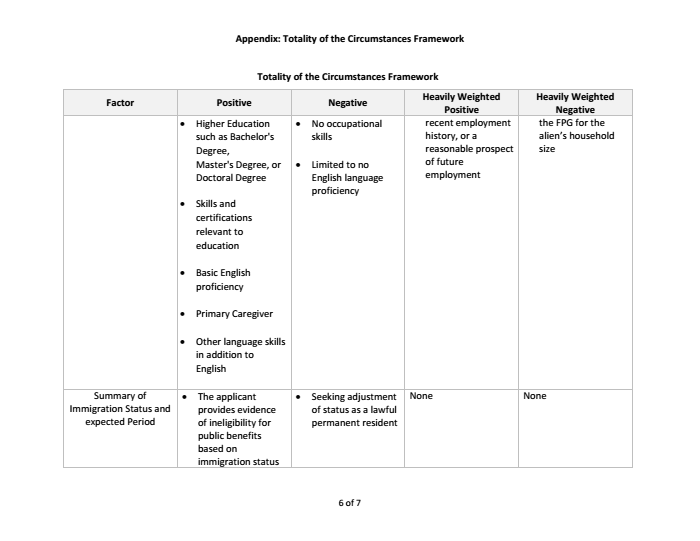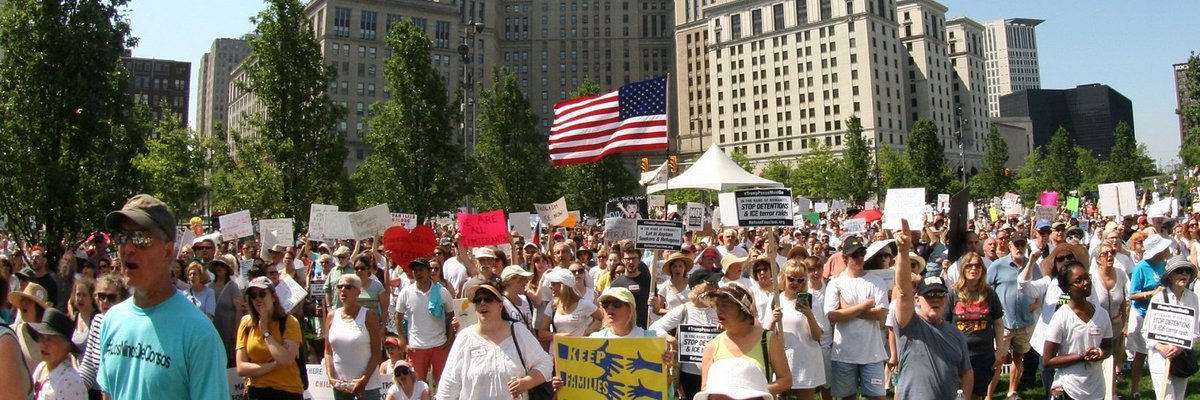The rocky rollout of a new immigration rule threatens to push more than half a million lawful immigrants off the legal path to citizenship. Policies outlining how to implement the public charge rule in less than two weeks are riddled with errors and, immigration lawyers say, misrepresentations of the actual regulations. The decisions made by applying these policies are final, even if they are also ill-informed.
In late February, immigrants living with government permission in the United States will have their applications for Lawful Permanent Resident status — green cards — judged against a new “public charge” evaluation after the U.S. Supreme Court said in January the new rules could be applied while cases challenging them move up through the courts.
The goal of the public charge rule, which has been on the books for more than a century but not applied in this way, is to assess a person’s “future likelihood of receiving one or more public benefits” for more than a year during a three-year period in the future. Those who the government judges are likely to receive these future benefits can have green card applications denied.
While far less attention-grabbing than the policies and practices used by the administration at the southern border, the uneven and possibly unfair application of a strict new immigration standard threatens to derail the citizenship hopes of hundreds of thousands of immigrants who have so far come to and remained in the United States legally.
Policy guidance and documents to be used in the public charge assessments have glaring errors. For example, one of the policy guidance forms instructs immigration officials to consider as a negative factor the act of applying for a green card. Applying for a green card is exactly what subjects immigrants to the public charge evaluation in the first place.
“Any green card application is going to have this negative factor,” said Marie Nelson, a lawyer with Michigan Immigrants Rights Center, noting that the public charge regulations don’t appear to support an immigration official being able to make a call like that. “It’s just crazy. It’s a show of bad faith. It’s absurd.” Green card denials cannot be appealed, even if a public charge test is misapplied.
“Any green card application is going to have this negative factor,” said Marie Nelson, a lawyer with Michigan Immigrants Rights Center. “It’s just crazy. It’s a show of bad faith. It’s absurd.” Green card denials cannot be appealed, even if a public charge test is misapplied.
Anita Rios Moore, a USCIS spokesperson, said the agency had “no additional information to provide related to the referenced document” and failed to offer clarification or comment on whether or not this information has been distributed to local officials or will be corrected.
Instructions from USCIS to local officials are full of directions to do the opposite of what the rules allow. The mistake-riddled paperwork and continued lack of clarity will inject more uncertainty into an already chaotic and sharply criticized change to the green card process.
More than half a million people a year apply for this immigration status from inside the United States, figures from the Department of Homeland Security show. The rules will also affect people trying to change some visa statuses but not Asylum-seeker or refugees.
Among the significant errors in the evaluation documents are instructions for officials to count, as a “heavily weighted negative” factor, income above 250% of the poverty level. Judging an application this way would penalize the financially-secure immigrants the policy should actually benefit.
The public charge rule, like green card applications generally, will be judged on a “totality of the circumstances” test by which an evaluator is encouraged to use some discretion but only within certain categories. Part of the public charge test asks an evaluator to count “basic English proficiency” as a positive factor but leaves it to the evaluator to establish what “basic” and “proficiency” mean, for example.
A lack of transparency throughout the green card application process forces immigrants and their advocates to make do with little information.
“If we get approval, there is no explanation,” Nelson, the lawyer from Michigan Immigrant Rights Center. said. “If it’s denied, there will be an explanation, but it will be cursory. There is no appeals process for green card denial, so that also limits the amount of discussion for why a case was denied.”
The ambiguity around the application of the public charge rule may serve the policy objectives of the Trump administration as it breeds the type of fear in immigrant communities that can keep people from applying for services or asserting their rights.
This “chilling effect” is a goal of the public charge rule in the first place, according to Nelson. As it is, most public benefits, like cash assistance and food stamps, are already off-limits for people without a green card.
Seydi Sarr is an immigrant rights advocate in southeast Michigan. She said last year she and other advocates told people not to worry about the new policy and to enroll in the benefits they needed and were eligible for while the issues played out in court. But, she says her advice is being disregarded because of fear.
“We’ve told people ‘don’t disenroll,’” Sarr said. “But they are going to disenroll.”
Madison Allen, a lawyer and policy analyst at The Center for Law and Social Policy in Washington D.C., said, “The Trump Administration has been reckless in pushing forward their public charge regulation and it’s unsurprising to see them be equally reckless in their implementation efforts.”
“We anticipate that the regulation’s expanded criteria including age, credit score, and disability, are likely to harm many,” she continued and said they will try to monitor the policy’s implementation.
The Center for Constitutional Rights in New York has filed a FOIA lawsuit against the Department of Homeland Security in an attempt to force the agency to disclose some of their decisionmaking as they worked to change and then implement the public charge rule. Ghita Schwartz, a lawyer for the Center says that they will also try to monitor the implementation of the rule but that she anticipates this will be challenging.
“It’s amazing how confusing, untransparent, and difficult it has become,” she said.
Update, February 25, 2020, 12:00 p.m.: The USCIS has corrected the instructions we reported on in this story. They have clarified that applying for a green card is not, in and of itself, a negative factor in the public charge assessment. They have also fixed the columns that appeared to transposed the heavily weighted negative and positive factors. The updated document can be found here.




